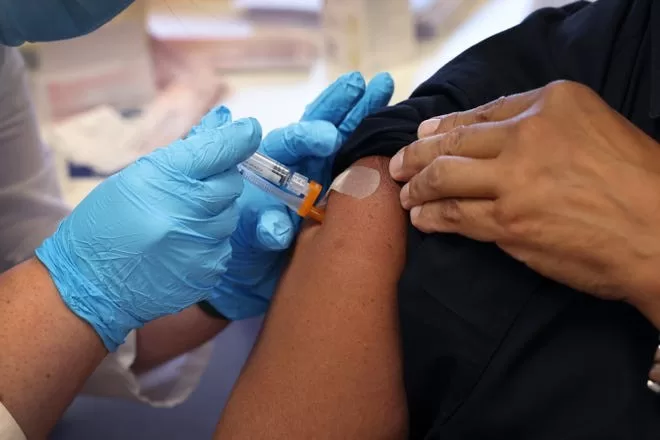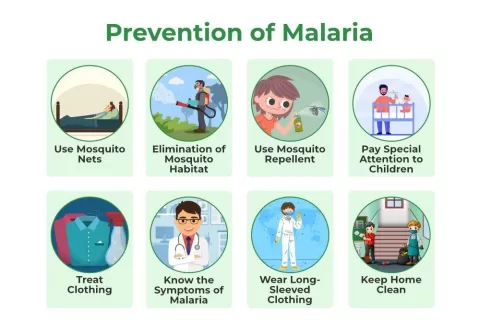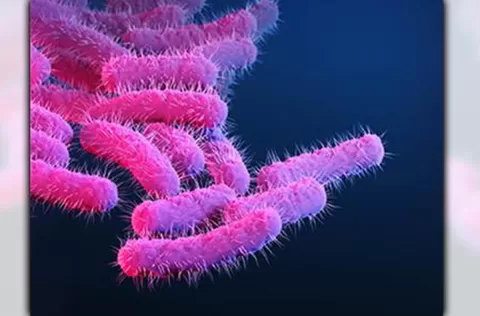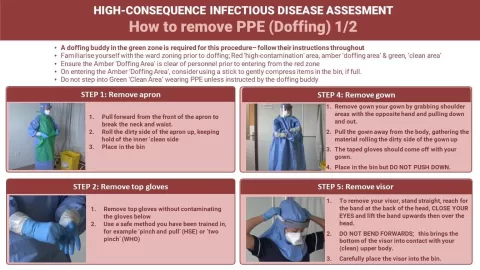COVID vaccines targeting the JN.1 lineage are at the forefront of public health efforts as experts adjust strategies to combat emerging SARS-CoV-2 variants. The World Health Organization (WHO) has recommended the continued use of monovalent vaccines that specifically address the JN.1 lineage, reinforcing their importance in maintaining immune protection against COVID-19. This lineage, identified for its potential to evade immune responses, warrants close monitoring, especially as studies have revealed JN.1-derived variants, such as LP.8.1 and NP.1. Following the ongoing influenza outbreak in the Democratic Republic of the Congo (DRC), the emphasis on effective COVID-19 vaccinations like those targeting the JN.1 lineage comes as part of broader WHO vaccine recommendations to mitigate the impact of respiratory viruses. As global health navigates through the complexities of infectious disease, leveraging the JN.1 lineage in vaccine formulations is critical to safeguarding communities against these evolving threats.
The JN.1 lineage of COVID vaccines plays a pivotal role in the current landscape of vaccine deployment and viral surveillance. With the continuous evolution of the SARS-CoV-2 virus, it has become crucial for health organizations to provide updated vaccine recommendations that address these new strains effectively. As various SARS-CoV-2 variants emerge, the focus on monovalent vaccines targeting the JN.1 lineage remains essential for ensuring optimal immunity among populations. Coupled with the recent influenza outbreaks in regions like the DRC, understanding the implications of these vaccines is vital for public health outcomes. Thus, adhering to expert guidelines and recommendations is more important than ever in the fight against both COVID-19 and influenza.
Understanding the JN.1 Lineage in COVID-19 Vaccines
The emergence of SARS-CoV-2 variants has necessitated continuous updates to COVID-19 vaccines to maintain their efficacy against new strains. The World Health Organization (WHO) has recommended that countries prioritize the use of vaccines targeting the JN.1 lineage, a strain that has demonstrated significant mutations capable of evading immune responses. This recommendation stems from ongoing assessments of how well current vaccines hold up against variants, including newer derivatives that may pose challenges to our immunization efforts.
As vaccine manufacturers adapt their formulations to include protection against the JN.1 lineage, it is crucial for public health agencies to communicate these updates effectively. The evolution of COVID-19 vaccines is critical, especially considering the high transmissibility of variants such as JN.1 and its implications for immunity durability. By getting vaccinated with an updated JN.1-targeted vaccine, individuals can increase their chances of immunity against infections, thereby reducing the overall transmission of COVID-19.
The Role of WHO in Monitoring SARS-CoV-2 Variants
The World Health Organization plays a pivotal role in global health, particularly in monitoring and assessing the evolution of SARS-CoV-2 variants like JN.1. By convening its Technical Advisory Group on COVID-19 Vaccine Composition, the WHO provides insightful recommendations based on the latest genetic developments and the immune responses observed from both infection and vaccination. Their guidance helps national health authorities decide on the most appropriate vaccines to deploy during the ongoing pandemic.
Monitoring variants is not just important for COVID-19 management; it also sets a precedent for other respiratory viruses. The current scrutiny over JN.1 should serve as a reminder of the potential rapid shifts in viral pathogenicity. Consequently, this emphasizes the need for ongoing vigilance—a lesson that extends to other health threats like influenza outbreaks as seen in the Democratic Republic of the Congo.
Current COVID-19 Vaccine Recommendations by WHO
The WHO’s recommendations on the use of COVID-19 vaccines targeting the JN.1 lineage highlight a significant aspect of pandemic response—adaptation to evolving viral landscapes. By sticking to JN.1 vaccines, the WHO emphasizes the importance of immunization strategies that are informed by the most up-to-date scientific data. This ongoing evaluation ensures that vaccine deployment aligns with the dynamic nature of COVID-19 infection rates and outbreaks.
Furthermore, the recommendation to maintain focus on vaccines effective against the JN.1 lineage underscores the urgency of vaccination campaigns worldwide. As new variants emerge and existing variants change, the need for an agile response system becomes apparent. Vaccines dedicated to targets like JN.1 enhance our defenses against potential surges that threaten global health.
Influenza Outbreaks and Their Relationship with COVID-19
The recent influenza outbreak in the Democratic Republic of the Congo, where samples indicated a 28% presence of the virus, highlights the interconnectedness of respiratory viruses, including COVID-19 and influenza. As regions experience dual outbreaks, understanding how these viruses interact becomes crucial for public health responses. Moreover, the simultaneous circulation of influenza alongside SARS-CoV-2 variants like JN.1 can lead to compounded healthcare challenges.
While the focus has primarily been on combatting COVID-19, influenza still poses significant health risks, particularly in areas already strained by other viral outbreaks. This situation reinforces the importance of vaccination for both influenza and COVID-19, prompting health authorities to encourage vaccines that protect against both threats.
Assessing the Impact of Respiratory Virus Mutations
The constant mutating nature of respiratory viruses such as COVID-19 and influenza emphasizes the need for comprehensive surveillance systems. Variants derived from lineages such as JN.1 are monitored not only for changes in transmissibility but also for potential evasion of immune responses from current vaccines. Understanding the significance of these mutations allows health experts to predict and plan for future vaccine needs.
Laboratory studies that assess the mutations present in these viruses are critical. They inform the adaptation strategies for vaccines to ensure robust immunity. Continuous engagement with genomic research enhances our capacity to counteract emerging variants effectively, thereby safeguarding public health.
Future of Vaccine Development in the Wake of COVID-19
Looking ahead, the COVID-19 pandemic has provided valuable lessons for vaccine development, particularly regarding handling emergent variants such as JN.1. Manufacturers are encouraged to remain flexible, conducting rapid assessments and adjustments to vaccine compositions as needed. This proactive approach can enhance global readiness for potential future outbreaks, creating a more resilient public health framework.
Moreover, the innovations in vaccine technology seen during the COVID-19 pandemic may lead to advancements in vaccines for other diseases, including influenza. The experience gained in developing rapid-response vaccines will play a crucial role in addressing future health emergencies involving respiratory pathogens.
The Interaction of Vaccines and Variants
Understanding the interaction between vaccines and viral variants is fundamental in managing COVID-19. Variants like JN.1 bring to light the complexities of vaccine efficacy as they might confer challenges to pre-existing immunity from earlier vaccinations. Continuous research on how well vaccines hold up against these variants is essential for shaping vaccination strategies.
For public health policies, integrating findings about variant interactions allows for informed decisions about booster programs and updates to vaccine formulations. As new data emerges, refining vaccination practices based on real-time variant developments becomes a priority for health authorities.
Public Awareness and Vaccine Uptake
Raising public awareness about the importance of vaccines, particularly those targeting the JN.1 lineage, is essential in combating COVID-19. Health campaigns should emphasize the safety and efficacy of these vaccines to encourage uptake among populations. This is especially pertinent as misinformation can lead to vaccine hesitancy, hindering efforts to achieve herd immunity.
Collaborative efforts between governments, health organizations, and communities can help foster a culture of vaccination. Ensuring comprehensive access to information about the benefits of JN.1-targeted vaccinations will empower individuals to make informed choices, ultimately boosting vaccination rates and mitigating the spread of SARS-CoV-2.
The Importance of Global Collaboration in Vaccine Research
Global collaboration is paramount in the fight against COVID-19 and its variants like JN.1. By sharing research findings, resources, and strategies, countries can enhance their collective response to emerging variants. This cooperative approach can lead to accelerated vaccine development, as seen during the pandemic, consolidating expertise and best practices across borders.
Moreover, a unified global effort could facilitate equitable vaccine distribution, ensuring that even lower-income nations have access to updated vaccines. Such equity will be crucial in controlling global outbreaks and ensuring that health systems remain resilient regardless of geographical barriers.
Frequently Asked Questions
What is the significance of the JN.1 lineage in COVID-19 vaccines?
The JN.1 lineage is crucial for COVID-19 vaccines as it represents a specific SARS-CoV-2 variant targeted by updated monovalent vaccines recommended by the WHO. These vaccines aim to provide better immunity against evolving strains of the virus, particularly JN.1-derived variants that may evade immune responses.
How do current COVID-19 vaccines address the JN.1 lineage?
Current COVID-19 vaccines have been formulated to include components targeting the JN.1 lineage as per WHO recommendations. This adaptation helps ensure effective vaccination strategies against new variants, enhancing protection during outbreaks.
Are there any concerns regarding JN.1-derived variants in COVID-19 vaccines?
Yes, there are concerns about JN.1-derived variants like LP.8.1 and LF.7.2, which may possess mutations enabling them to evade immune responses more effectively. Ongoing monitoring of these variants ensures that COVID-19 vaccines remain effective against emerging threats.
What role does the WHO play in COVID-19 vaccine recommendations for the JN.1 lineage?
The WHO provides vital guidance on COVID-19 vaccine recommendations, advising countries to utilize vaccines targeting the JN.1 lineage in response to genetic developments and variations in SARS-CoV-2. Their recommendations assist in maintaining global vaccination effectiveness.
How is the JN.1 lineage related to the ongoing influenza outbreak in the DRC?
While the JN.1 lineage specifically pertains to COVID-19 vaccines, research has identified respiratory viruses, including influenza, in recent outbreak samples from the DRC. It’s important to differentiate between these infections, but the presence of SARS-CoV-2 variants alongside influenza highlights the complex landscape of respiratory viruses.
What updates have manufacturers made to COVID-19 vaccines regarding the JN.1 lineage?
Manufacturers have updated their COVID-19 vaccine formulations to include components targeting the JN.1 lineage, as recommended by the WHO. This ensures that vaccines are better equipped to combat the current and emerging variants of the virus.
What should people know about receiving COVID-19 vaccinations targeting the JN.1 lineage?
Individuals should be aware that receiving COVID-19 vaccinations targeting the JN.1 lineage can enhance their protection against infections, especially during the circulation of specific variants. It’s advisable to stay informed about local health guidelines regarding vaccinations.
What has research shown about JN.1 lineage variants and immune response?
Research indicates that some JN.1 lineage variants may have mutations that help them evade immune responses. Continuous monitoring and adaptation of COVID-19 vaccines to include JN.1 lineage components are essential to safeguard against these variants and maintain public health.
| Key Points | Details |
|---|---|
| WHO Recommendation | Continue using monovalent COVID vaccines targeting the JN.1 lineage. |
| Variant Monitoring | Variants like LP.8.1, NP.1, and LF.7.2 are being monitored due to potential immune evasion. |
| Recent Outbreak in DRC | 28% of samples tested positive for influenza; also identified respiratory viruses and severe malaria. |
| Location of Outbreak | Panzzi health district, Kwango province, southwestern DRC, about 425 miles from Kinshasa. |
Summary
COVID vaccines targeting the JN.1 lineage remain a crucial recommendation by WHO, highlighting the ongoing need for vigilance in vaccine formulation and monitoring of variants. As respiratory viruses continue to emerge, especially in regions like the Democratic Republic of the Congo, maintaining an effective vaccination strategy is essential for public health and mitigating severe outbreaks.
The content provided on this blog (e.g., symptom descriptions, health tips, or general advice) is for informational purposes only and is not a substitute for professional medical advice, diagnosis, or treatment. Always seek the guidance of your physician or other qualified healthcare provider with any questions you may have regarding a medical condition. Never disregard professional medical advice or delay seeking it because of something you have read on this website. If you believe you may have a medical emergency, call your doctor or emergency services immediately. Reliance on any information provided by this blog is solely at your own risk.








